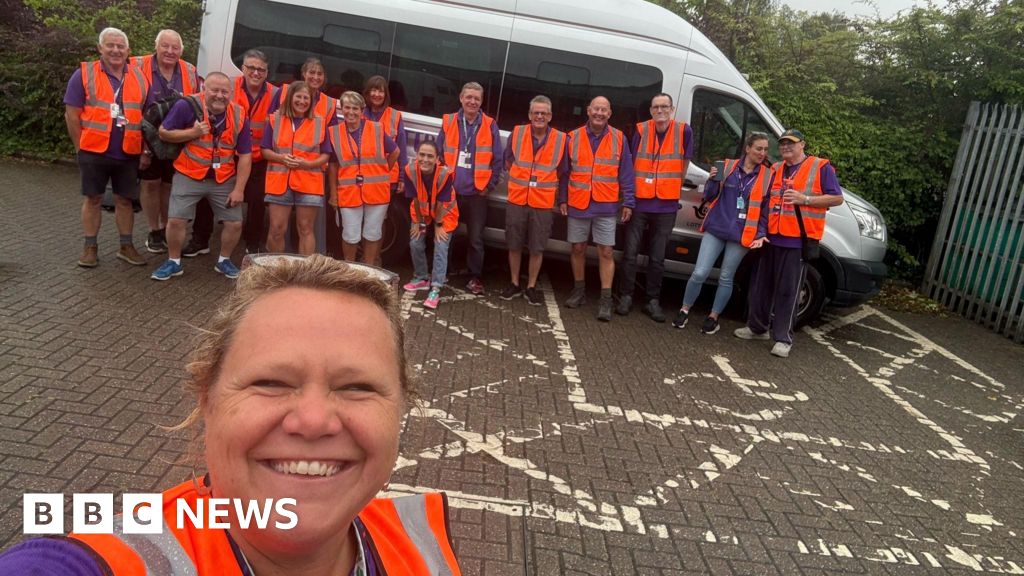We’ll never match pace with AI, but slowing down enough to match pace with nature gives us a chance … [+]
Future via Getty Images
Sharp-edged and clear, Vishen Lakhiani’s voice comes at you in rapid-fire staccato. The brilliant founder and CEO of Mindvalley, Vishen took the stage several times during their recent AI summit to share how he has transformed his work and saved 1.5 days of time per week with the smart use of AI. He quoted Peter Diamandis in observing, “By the end of this decade, there will be two kinds of companies: those that fully embrace AI and those that are out of business.” At the same time, it’s easy to imagine scenarios in which AI destroys us. “Like money,” Vishen said, “AI is neither good nor bad; it all depends on the consciousness with which it’s used.” Like many of us, he wants to see it used by leaders who are more evolved in their consciousness, not operating from the rational, exploitative intellect that characterizes the modern age. Hence, Mindvalley’s play to become a premier trainer of AI for its community, which is oriented to evolving consciousness and integrating mind, body and spirit. By way of selling the advantages of using AI, Vishen said he quickly realized that 30 of the 35 open marketing positions at Mindvalley did not need to be filled. AI could do them.
And there’s the rub and reason this technology is going to change everything. Vishen’s decision makes good sense; he would be foolish to hire people he doesn’t need. But that scenario—evaluating what jobs we can cut or don’t need to hire for, or what services we don’t need to contract for—is going to repeat in every organization, every sector, every country that has access to this technology. It’s already happening and creating a revolution in what constitutes a viable business model, a sustainable career, or a useful education to prepare for either. It’s already happening to writers and actors, fomenting a strike in Hollywood. They’re absolutely correct in saying if they can be replaced by technology, so can much of the middle class. Regardless of how the strike is settled, the AI genie is already out of the bottle.
The challenge facing those who want to use AI to serve life (rather than their life serving or being crushed by AI) is how to be wiser than an intelligence that is growing exponentially. While our tendency is to speed up, and it’s true that a whip-smart intellect can learn AI tools more quickly, the wisdom to use AI well does not come from speeding up. No matter how fast we go, we’ll never match pace with AI. Rather, doing just the opposite—slowing down—opens us to the wisdom we need to use AI in service of life. We need to slow down enough to hear nature’s wisdom, to resonate with essential wisdom, to conduct the Way, the Void, or what Indigenous traditions would call the Womb of the Universe into the realm of earthly affairs. While this may not be standard business school curriculum, the intuition arising from essential wisdom is not newfangled, far out, or inaccessible. Feeling into nature’s wisdom is a good access point to essential wisdom and practices for such access are as near as your own breath and body. Here’s a starting point.
Slow Your Exhale, Still Your Body
Let out a sigh of relief; it’s called that for a reason because the exhale is the relaxing part of the breath cycle. Now let out a long, slow exhale through your nose. The length of your exhale will depend on where tension is held in your body and what muscles in the body are regulating the breath. When we breathe high up in our chest, our exhale can’t last very long. But when our breath is regulated from the hara (i.e., lower abdomen), we get the deepest, slowest breath possible. This kind of breathing also stimulates the parasympathetic nervous system to calm us down and quiet our chattering thoughts. Combine this with a still body as we do in Zen meditation, and we create the conditions for deeper listening and more wide-ranging sensitivity.
Tune to Different Frequencies
It makes sense that we can listen better when our own mind chatter is not so loud, but something more is going on when we slow ourselves down. We are like a complex antenna that can tune to many frequencies. Our eyes can pick up the frequencies of light energy. Our ears and much of our body vibrate to the slower frequencies of sound and how it moves air. The vibration of wind is detected by hairs on our skin. Plus, we resonate with many energies we don’t have a named sense for, such as the vibe of a relationship, the spirit of a team, or the mood of a room. When we slow down, our senses, both named and unnamed, open up. More frequencies become available to us and, in particular, the frequencies on which the music of nature plays.
I’m reminded of Bird Baylor’s The Other Way to Listen, a children’s book (for adults, too) where a youngster learns from an old man how to “hear the wild-flower seed bursting open…the rocks murmuring and hills singing.” As the elder adds, “Of course, it takes a lot of practice, and you can’t be in a hurry. Most people never hear these things at all.”
We don’t hear these things because we’re operating too quickly—we’re not tuned to the right frequency—and have forgotten that we have a need for the information. One of the principles of resonance, which means to “vibrate with” and is the principle of all change, is that a system only picks up energy that matches it or that it can use. As an example, if I shout into a grand piano, the strings that match vibrations in my voice will pick up the energy and start to vibrate. Those that don’t match will be still. So, if we want to pick up nature’s energy and wisdom, we have to match nature’s rhythm, be one-with nature in harmonious relationship. In this state, we are also guided in our actions by what we sense, as in dancing with a partner. Living and dying by the land, our ancestors knew this, and even today Indigenous cultures and naturalists preserve this knowledge. But the culture of individualism and dominance over nature that characterizes modernity is centuries removed from this understanding. If we want to hear nature’s wisdom, we have to be intentional about re-tuning ourselves to the slower frequencies and quieter amplitudes of its murmurings and be ready to be guided by what we hear.
Sense the Rhythm of the Day
How much do we have to slow down to hear nature’s wisdom? A metaphor I’ve found useful is to imagine inverting how one measures blood pressure. Measuring blood pressure with an arm cuff, the cuff is pumped up beyond one’s blood pressure and then slowly reduced until a match is found to the pressure the heart can exert. In sensing nature, we want to slow down below nature’s frequency, get so quiet, so still, we feel like we’re at absolute zero. We can then feel for a frequency that begins to pulse on that clear pond of stillness, and then come up to match that frequency.
That’s how I’ve come to feel into the rhythm of the day. This, too, takes practice and you can’t be in a hurry. Years ago, when I first learned that days had rhythm, I couldn’t feel it at all. But the more I slowed down in meditation, and the more curious I became about broadening and deepening my senses, the more I started picking up the signal. It wasn’t something I heard in my head, but rather felt in my hara, as if I were picking up the beat of a song that my body knew how to move to.
This is by no means the full depth of listening to nature or all that’s possible in drawing intuition from essential wisdom, but it’s a good gateway. It’s also a good reminder of what sets us apart from AI in being human. Unlike AI, which scrapes the symbolic surface of human activity, we grew up through life, through the entire evolutionary story; we are a dynamic ecosystem one-with life. When we can’t feel that one-withness, our thoughts, decisions and actions get driven by a separated ego and its self-perceived interests. No matter how smart or evolved the ego thinks it is, without tapping essential wisdom, it will think too small.
To use AI wisely in service of life, we need to resonate with the technology of our time, as well as with essential wisdom, recognizing that they’re playing on radically different frequencies or “radio stations.” Physically, we need to expand the range and sensitivity of our antenna-self if we want to pick up both. At times, we do well to tune to the rapid-fire frequency of a CEO sharing how AI has saved him 1.5 days per week. And at other times, we do well slow down to zero, so that we can tune to the rhythm of the day, the frequency of an oak tree, the breath of an ocean. What better use of those 1.5 days than to devote ourselves to hearing the voice of essential wisdom? Lead AI from here and AI might just learn from us how to help create a thriving world.
Credit: Source link











